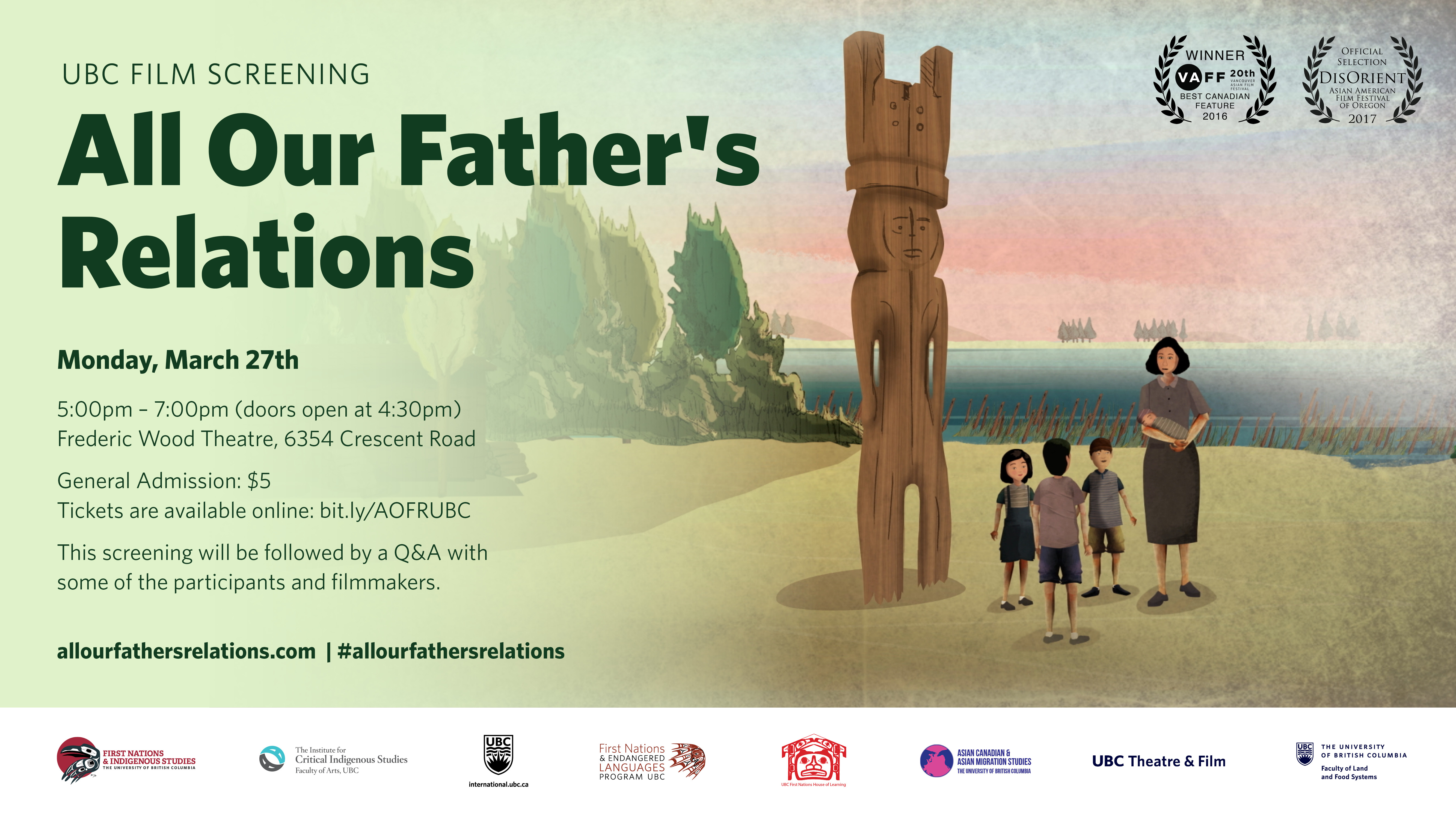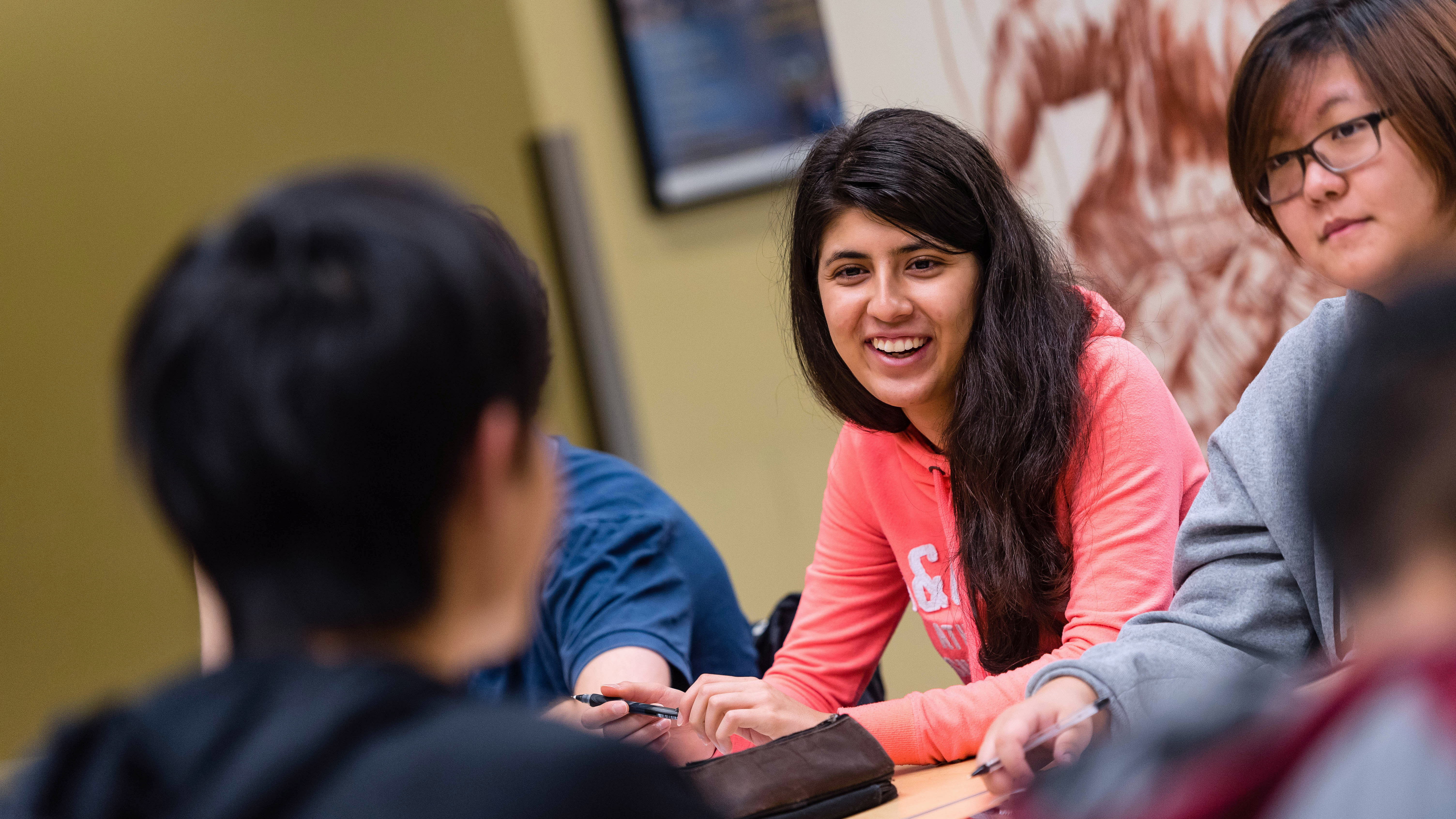A documentary produced by UBC Arts professors and graduates explores the little known relationship between the Musqueam Nation and early Chinese migrants in British Columbia.
In 2013, UBC film adjunct professor Alejandro Yoshizawa and alumna Sarah Ling travelled to China to document an intercontinental family reunion.
Four elderly siblings born in Vancouver to a Musqueam mother and Chinese father were in Guangdong, China to meet their father’s side of the family and visit the ancestral home he left behind in 1920. One of these siblings was Elder Larry Grant, Adjunct Professor in the First Nations and Endangered Languages Program at UBC and Elder-in-Residence at the First Nations House of Learning.
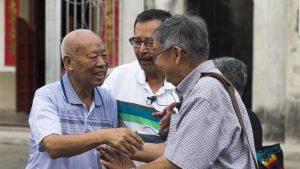

The award-winning documentary All Our Father’s Relations screens at UBC on March 27. The film was produced by UBC Arts professors Alejandro Yoshizawa (Theatre & Film and Asian Canadian & Asian Migration Studies Program) and Henry Yu (History) as well as UBC Arts alumna Sarah Ling.
The documentary that emerged follows the Grant family as they reflect on their experiences growing up on the Chinese farms at Musqueam and in Vancouver’s Chinatown. In so doing, it highlights the little known relationship between Chinese and First Nations in early B.C. history, revealing how they supported and lived alongside each other in the face of racism and marginalization.
All Our Father’s Relations was awarded Best Canadian Feature when it premiered last November at the Vancouver Asian Film Festival. It will be screened at UBC on Monday March 27 at 5pm at UBC’s Frederic Wood Theatre (Event Details).
We spoke to Alejandro Yoshizawa, Sarah Ling, and Henry Yu, members of the crew who came together to produce the film, about what inspired them to document this story and what impact they hope the film will have.
What impact do you hope this film will have?


Henry Yu (Executive Producer) is an Associate Professor in the Department of History, and the Principal of St. John’s College.
Henry Yu: Through seeing the personal stories of the Grant family, and feeling the impact of discriminatory legislation on them and their parents, I hope that all Canadians can come to see how racist laws affected both Indigenous peoples and Chinese in Canada. In particular, I hope that newer Canadians who may not know the history, and in particular new migrants from China, come to understand how fortunate they are that those who came before them struggled to make Canada a more just and fair society.
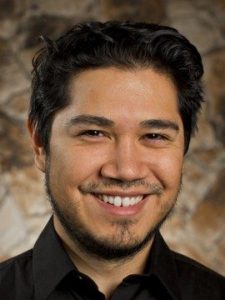

Alejandro Yoshizawa (Director and Producer) is an Adjunct Professor in the Asian Canadian & Asian Migration Studies Program and the Department of Theatre & Film.
Alejandro Yoshizawa: I hope the film adds to conversations about ‘Canadian history’. I hope audiences can empathize with some of the communities presented in the film and understand a bit more about the incredibly racist and prejudicial past Canada has, and how that has a direct and very real effect on people today. But I also hope they come away from the film with a sense of optimism and hope.
Sarah Ling: I’m already inspired by the ways in which many communities, colleagues, and organizations have reached out to us with a keen interest in sharing the film. There is a phenomenal amount of momentum across the City of Vancouver in terms of having honest and critical conversations about the unceded lands we live on, and the kinds of relationships that need to be mended or created – not only between Indigenous and non-Indigenous peoples, but to our host communities and the lands they steward. My hope is that this film will be used as a tool to mobilize people to nurture conversations like these, and inspire other storytellers.
Each of you have strong ties to UBC, and work in the Faculty of Arts. How did you begin working together, and what inspired you to make this film?
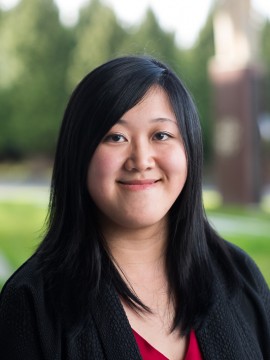

Sarah Ling (Producer) is a UBC Alumna and the Media and Communications Assistant and Student Advisor for the First Nations and Endangered Languages Program.
Sarah Ling: Alejandro and I were part of the research team led by Henry Yu at UBC called Chinese Canadian Stories (2010-2012), a one-stop web portal dedicated to collecting, digital archiving, accessing, and distributing information about Chinese Canadian history. As I helped to develop stories on Chinese and First Nations relations, I learned how to edit films that Alejandro and Henry had filmed with Musqueam-Chinese Elder Larry Grant. This resulted in two shorts: Not Belonging and Intertwining Cultures. Since then, we’ve worked on numerous media-based collaborations on local Asian Canadian and Indigenous histories.
During the process of working on Chinese Canadian Stories, we played with the idea of creating a follow-up to “Cedar and Bamboo,” a local documentary exploring marriages between Indigenous women and Chinese migrants in B.C. I was inspired to take the story of Chinese-First Nations relations further. Then, in the fall of 2013, I found out that Larry Grant and his siblings had decided to visit their father’s ancestral village for the first time. I knew it was a once-in-a-lifetime opportunity to help them record and preserve their experience. Their father left the village of Sei Moon in Guangdong, China to come to Vancouver in 1920. He joined his father and other relatives on the reserve, where they operated one of many market gardens called Lin On Farm, and that’s where he eventually met his wife, Agnes Grant of Musqueam.
Henry helped Alejandro and I find funding to fly to China. The Grant family allowed us to accompany them, and off we flew to Sei Moon with a little bit of equipment. When we got back, we released a teaser of the film we wished to make, and everything took off after that for the next few years! The project wouldn’t have gotten off the ground without the support and encouragement of Henry Yu and Howard E. Grant (Larry’s younger brother), who became our Executive Producers.
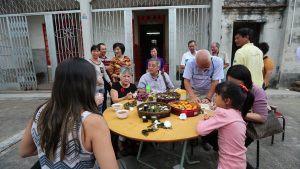

In 2013, the Grant siblings travelled to China to meet their father’s side of the family and visit the ancestral home he left behind in 1920.
What was one of your favourite parts of the filmmaking process?
Alejandro Yoshizawa: For me it was probably shooting in various locations with the family. We shot at Musqueam, near Lillooet, in Agassiz, Vancouver, Steveston, and of course China. The family was always very accommodating and patient, allowing the crew to relax a bit and capture some beautiful images. That said, the run-and-gun shooting in China was hectic but it was also a phenomenal experience. There was almost too much to capture!
Henry Yu: [My favourite part] was seeing how so many of the processes of history that we learn about – as legislative acts and policies that seem so abstract and formal – had powerful effects on people that were personal and emotional in devastating ways. A film can bring alive the reality of history in ways that books and essays really can’t. This film will have an impact that goes so much farther than what scholars can usually have.
Sarah Ling: Our film features animated sequences throughout the film. I really enjoyed being involved in each stage, and watching the entire process unfold – from watching some of the Grant siblings sketch from memory for a story about their grandfather’s bighouse, to working with our storyboard artist, to listening to the effects our sound designer recorded. The entire experience was both fun and challenging. It began with what I thought was a big risk, which was diving into a new process with an animator who lived far away in Uruguay. But the collaboration via Skype turned out extremely well – both the Grants and our team are so pleased with how the animations bring the siblings’ stories to life and ignite the imaginations of the viewers. (If you’d like to see some of Gustavo Wenzel’s amazing animation work, check out one of our sequences on his website.)
You had a successful premiere at the Vancouver Asian Film Festival in November 2016, where your film was awarded Best Canadian Feature. What’s next for All Our Father’s Relations?
All Our Father’s Relations will be screening at several film festivals in 2017 and at community screenings in cities including Nanaimo, Edmonton, Calgary, and Richmond. We are also working with a broadcaster in Canada. We will be creating and distributing DVDs and other licenses for the film later this year. Find out when the next screening is on the website or Facebook page!
